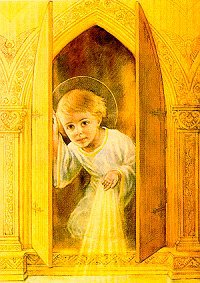
In reality, we suffer only in our relations with others. The possibility of suffering measures the intimacy and the intensity of the bonds which unite us to another being. We do not suffer in our relations with those who are indifferent. In fact, indifference in some sense protects us against suffering. When indifference ceases, our capacity for suffering returns, and it is proportionate to our interest in and our affection for another. It emerges as soon as the bonds which unite us to the other are threatened; it is then that the bonds of friendship testify to their existence and their depth….
It is impossible not to seek the reasons for my suffering, not to undertake to justify them…
We are told that in pain we pass to a lesser degree of perfection; it is inevitable that this passage should affect our interior activity. We have an awareness of what we have just lost; we know that at one point we had something and now we no longer have it. But the very awareness of this loss introduces in us, as has always been held, a growth of consciousness which is not itself a loss. Consequently there is born in us a new being, very different from the being we were before we began to suffer. My spontaneity is curbed, it is true, but my reflection and my will come into play to compensate for what has been taken away from me. My activity, which has been up to this point instinctive, has now become spiritual. The use that I make of it will depend upon me alone; it will be up to me to decide whether or not this loss can be converted into a gain.
From: Evil and Suffering, Bernard Murchland, C.S.C.,Tr., 1963 Macmillan Company, New York, NY ; writings of: Louis Lavelle, (+1951) professor at the Sorbonne, Paris, France and prominent Christian philosopher.
It is impossible not to seek the reasons for my suffering, not to undertake to justify them…
We are told that in pain we pass to a lesser degree of perfection; it is inevitable that this passage should affect our interior activity. We have an awareness of what we have just lost; we know that at one point we had something and now we no longer have it. But the very awareness of this loss introduces in us, as has always been held, a growth of consciousness which is not itself a loss. Consequently there is born in us a new being, very different from the being we were before we began to suffer. My spontaneity is curbed, it is true, but my reflection and my will come into play to compensate for what has been taken away from me. My activity, which has been up to this point instinctive, has now become spiritual. The use that I make of it will depend upon me alone; it will be up to me to decide whether or not this loss can be converted into a gain.
From: Evil and Suffering, Bernard Murchland, C.S.C.,Tr., 1963 Macmillan Company, New York, NY ; writings of: Louis Lavelle, (+1951) professor at the Sorbonne, Paris, France and prominent Christian philosopher.

No comments:
Post a Comment